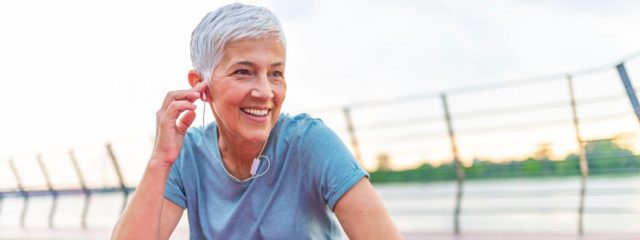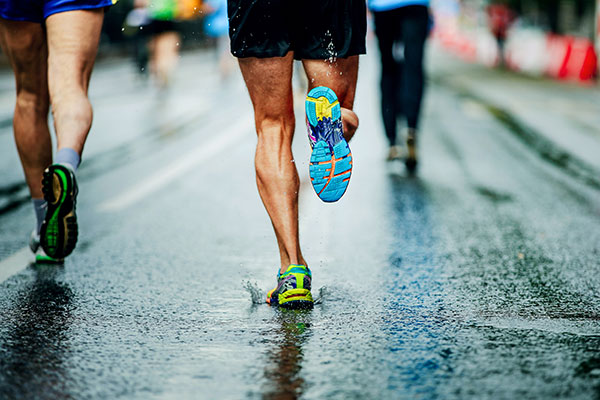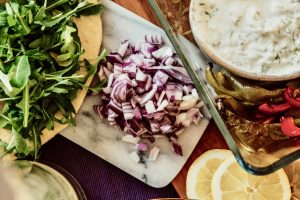Nutrition For The Ageing Athlete

By Joy Skipper
Registered Nutritional Therapist
The Ageing Process
According to current population forecasts, the number of elderly people will increase worldwide from 6.9% of the population in 2000 to a projected 19.3% by 2050, with the number of masters athletes expected to increase too. Not only is the number of older athletes participating in competitive events increasing, it is at a much greater rate than young adults, with training and nutritional practices evolving to support the older athletes towards their goals.
The State of Ageing 2020 reports that the state of the nation has been brought into sharp focus by the coronavirus pandemic, with over 90% of deaths from COVID-19 being people with at least one pre-existing health condition, such as diabetes, chronic lung disease, chronic kidney disease, cardiovascular disease and obesity. The data also shows that one in four people between the ages of 55-64 are physically inactive.
As we age there are lots of outward signs – greying hair, more wrinkles, changes in body composition, and decline in multiple cognitive domains, but it doesn’t mean we have to accept these things, or give up on a love of sport, and the benefits that come from it, both physical and mental. And although it becomes harder to achieve those personal best race times or distances that you once did, there are new goals that can be aimed for, with impressive new age-group world records being pushed to the limits each year.
Looking at world record performances by master athletes suggests an essentially linear decline with age until the eighth decade when performance decline accelerates. However, it’s not all about winning medals, and some studies show that Master athletes’ aerobic capacity, muscle strength, and body composition are generally on par with young, untrained adults and they are generally regarded as models of successful ageing, enabling the older generation to enjoy a more mobile and possibly mentally stimulating life for longer.
It’s no secret that in most sports athletes reach their peak between their mid-twenties and early thirties, after which physiological functions start to decline, this article looks at those declining functions and how athletes can help to support each one.
VO2max
VO2max (maximal oxygen consumption) appears to be the primary mechanism associated with declines in endurance performance with age, but there is evidence that the age-related decrease in VO2max of master athletes who continue to engage in regular vigorous endurance exercise training is approximately one-half the rate of decline seen in age-matched sedentary subjects. Decreases in maximal stroke volume, heart rate and arterio-venous O2 difference all appear to contribute to the age-related reductions in VO2max in endurance-trained athletes., but these declines may also be due to a reduction in the intensity and the volume of training that can be performed by a masters athlete in each training session, with recovery and recuperation needed in between.
Some studies suggest these declines are definitely a reflection of a reduced training load, a reduction in exercise training ‘stimulus’ i.e. exercise-training intensity, session duration and frequency, implying that if the older athlete increased their training load, then their performance would also increase. This raises an important question as to the volume of training and the maximum capacity of training an older athlete is capable of, taking into account injuries, family related responsibilities and motivation i.e. the intrinsic drive to continue to be physically active or to train hard.
Cardiovascular Health
It is well known that heart rate peak reduces with age, regardless of sex and habitual exercise status, and ageing is associated with an inexorable decline in cardiac and vascular function, with an increased risk in cardiovascular disease (CVD). But lifestyle factors such as exercise have been shown to be one of the most powerful therapies to fight illness, including CVD.
Lifestyle factors such as exercise have been shown to be one of the most powerful therapies to fight illness, including cardiovascular disease.
Muscular Decline
Ageing is associated with a progressive loss of muscle mass (sarcopenia), which also increases the risk of injury and disability and a loss of strength. Men experience a more rapid muscle loss between the ages of 41 and 60, whereas women experience the rapid loss
after 60. Although the mechanisms of this muscle loss are not clearly understood, a decline in protein intake or changes in the response to nutrition within the muscles may be contributing factors, as well as low-grade chronic inflammation. Ageing is associated with changes in the responses to the muscle protein metabolism response to a meal, which may be hormone related, however, older muscle is able to respond to amino acids, and the essential amino acids and BCAAs have been shown to acutely stimulate muscle protein synthesis in older individuals.
Cognitive Ability
Recent studies have suggested that physical exercise may protect against the neurological pathway associated with ageing, including Alzheimer’s and Parkinson’s disease, not only reducing cognitive decline but it may actually lead to improved mental condition in older adults. Masters athletes also reported higher scores than non-athletes for all categories of assets such as support, boundaries and expectations, constructive use of time, social competencies and commitment to learning, all of which may help the masters athletes to deal with the expectations of the ageing process in a more positive way, actively resisting the negative age-stereotypes.

Nutritional Considerations
Despite limited evidence existing on the nutritional requirements for masters athletes, using data based on younger athletes and older non-athletic populations helps to build a picture with recommendations that can be advised.
Key nutrient requirements for masters athletes include the need for adequate energy and protein intake for preventing low bone and muscle mass, and optimising post-exercise recovery. Essential amino acids are needed as the building blocks for the remodelling of muscle and body proteins, as well as contributing to energy during exercise when carbohydrate availability is low, and research has already established that daily protein requirements are elevated across the spectrum of sport disciplines, and these requirements are just as important for older athletes, if not more so.
There is a higher demand for specific nutrients such as vitamin D, known for its importance in skeletal health by regulating calcium and phosphorous absorption and bone mineralisation. Vitamin D, omega 3 fatty acids and probiotics may also help to improve
both mucosal and systemic immunity and enhance resistance against inflammatory and metabolic diseases, whilst also helping to preserve psychological wellbeing, which may be important for motivation to continue training and competing.
Key nutrient requirements for masters athletes include the need for adequate energy and protein intake for preventing low bone and muscle mass, and optimising post-exercise recovery.
Supplements
The use of supplements is widely used among athletes, not only in competitive sports and high performance, but also in recreational sports and for general fitness. In contrast to elite athletes supplementing their diets for an increase in their performance, masters athletes have been shown to take supplements for health reasons, predominantly using vitamins and minerals to support their general health. However a few studies have shown that vitamin and mineral supplementation in masters athletes has indicated an overall positive effect on performance. As with any healthy diet, food is the best way to take in nutrients, but if there are deficiencies then supplementation may be useful.
In Summary
Athletes put a lot of stress on their bodies to train and compete, and this stress does not reduce with age, but exercise itself has been shown to be beneficial in the ageing process as long as it is supported with good nutrition alongside sufficient rest and recuperation strategies. With masters athletes generally regarded as models of successful ageing I see no reason to stop training or competing any time soon!
Findings from research into older athletes by Rylee Dionigi, simultaneously exposed alternative ways of thinking about sport and ageing, and reflected a society that values competitiveness, youthfulness, and physical activity – to feel youthful in older age is certainly a bonus!
BOOK A CALL WITH OUR FRIENDLY ASSESSMENT TEAM
Please check Our Fees page before booking a call.
Choose a day and time that works for you.
Tell us what is going on for you.
Let us explain how we can help.
If any of the areas explored in this blog resonate with you, and you think you might benefit from working with a qualified professional, our team of nutritional therapists are here for you. We look at your overall diet and lifestyle and work with you to make changes to fit with your way of life to sustainably achieve optimal health and wellbeing in the long term.
If you would like more information on how we can help you, book a free discovery call with our friendly and experienced team today. We will listen to your story and explain how our services can best support you.
ONLINE NUTRITIONIST COACHING
Learn more about Health and Wellbeing
Here are some articles and blogs about health and wellbeing



